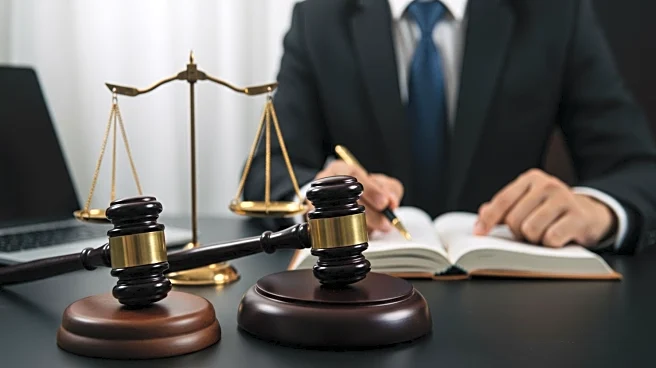What's Happening?
The U.S. Department of Justice is pursuing sanctions against Joshua Schroeder, a California-based attorney, for his efforts to block the deportation of his client, a Hmong man from Laos. Schroeder's legal maneuvers temporarily delayed the deportation through court filings, but the Trump administration has accused him of making meritless claims and misrepresentations. The Justice Department is seeking substantial monetary penalties, arguing that Schroeder's actions were part of a broader pattern of behavior undermining immigration enforcement. This move aligns with President Trump's memorandum from March, which instructed the U.S. Attorney General to prioritize sanctions against attorneys and firms engaging in frivolous lawsuits against the government. Schroeder, who represents his client pro bono, has highlighted the potential dangers his client faces if deported to Laos, citing historical ties between the Hmong and the U.S. during the Vietnam War.
Why It's Important?
This development underscores the Trump administration's intensified efforts to enforce immigration laws and penalize legal professionals who challenge these actions. The sanctions against Schroeder could set a precedent, potentially discouraging other attorneys from taking on similar cases due to fear of retribution. Civil rights advocates warn that such measures may stifle legal opposition to immigration policies, impacting the ability of immigrants to receive fair representation. The broader implications could affect the legal landscape for immigration attorneys, altering how they approach cases involving deportation and government actions.
What's Next?
The outcome of the sanctions motion against Schroeder remains uncertain, but it could influence future legal strategies and the willingness of attorneys to engage in cases against government deportation efforts. If successful, the sanctions may embolden the administration to target more lawyers, potentially leading to a chilling effect on legal advocacy in immigration matters. The legal community and civil rights organizations are likely to monitor this case closely, considering its implications for legal practice and immigrant rights.
Beyond the Headlines
The case raises ethical questions about the balance between government enforcement and legal advocacy. It highlights the tension between the administration's immigration policies and the role of lawyers in defending vulnerable populations. The use of sanctions as a tool against legal professionals may provoke discussions on the limits of government power and the protection of legal rights in contentious policy areas.









